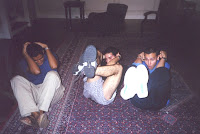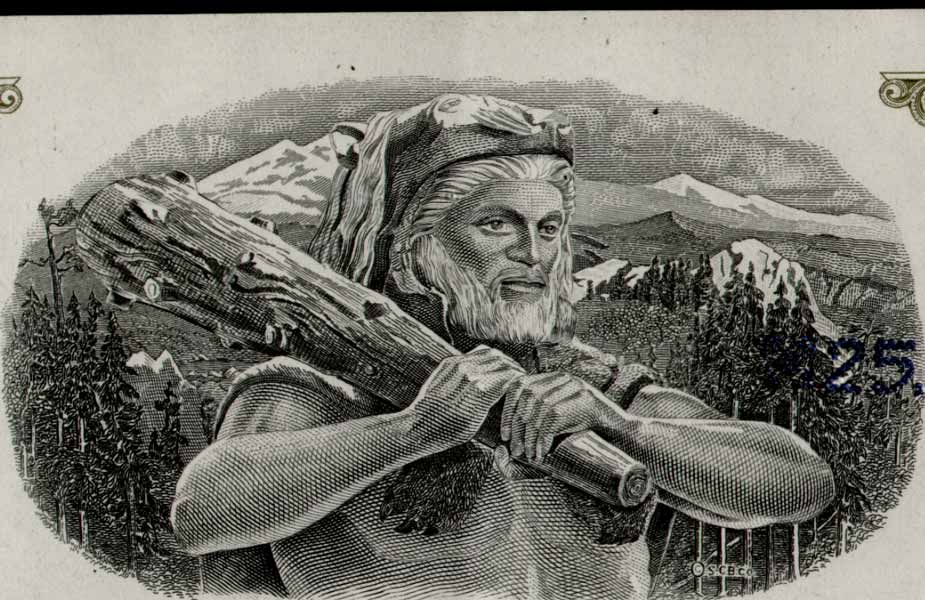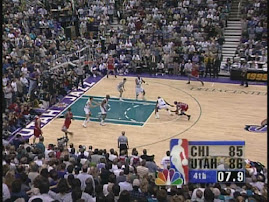Last May, Jameer Nelson “guaranteed” that his Magic, down 3-1 to the Pistons, could eke out game 5. Oops, that didn’t work out so well. Speaking of the Pistons, their starting F-C is known for his hastily issued “Guaran-sheeds” of victory. His most famous guarantee, I think, came before the fourth game of the 2006 Eastern Conference Semifinals. Whoops again: LeBron took over the final quarter and the Cavs eked out a victory. Since then, Rasheed doesn’t make a lot of guarantees.
In business, third-party guarantees are usually used when a borrower (whether an individual or a company) lacks the credit-worthiness to give sufficient comfort of repayment to a lender. Guarantees can also be used in ordinary commercial sales or services contracts in place of a letter of credit, to provide comfort in case the seller doesn’t sell or the buyer doesn’t pay. A guarantee is just a written contract: a promise to pay. The guarantor, often a family member (of an individual) or corporate affiliate (of a company) pledges to pay the borrower’s obligations if the borrower fails to. The point is that the guarantor really will be on the hook if the borrower defaults or otherwise screws up.
The most famous guarantee in modern sports came when a young Joe Namath, pilot of the New York Jets, guaranteed victory against the Baltimore Colts in Super Bowl 3. These boasts were then quite novel (who could be so brash to question the right of reign of the great Unitas?) and Namath surely would have lost much face if his team had not come through. Accounts of that game since then still center on Namath’s audacity. It is fair to say that if the Colts had pulled out the win, Namath’s subsequent image as a James Bond-esque son of a gun would never have arisen. Namath would probably be forever known as the kid who ran his mouth too much.

It is fair to say that a third-party guarantee promotes (value-adding) transactions not only by giving comfort of performance to the recipient of the guarantee, but also placing an extra burden on the original obligated party. The obligated party now really doesn’t want to screw up, lest he (or it) cause reputational and financial loss to the guarantor, which may be a close family member or a corporate parent. This dynamic is unquestionably found in sports. When R-Dub makes a “guaran-sheed”, his team wants to back him up, lest he suffer embarassment. Also, fans of the Pistons now may be more likely to invest emotionally in the next game with the comfort that Sheed has put his credibility on the line, and why would he do that unless he knows something that the fans don’t?
As a practical matter, a guarantee before a sports match might actually have counterproductive effects by inspiring the opponent to play better and prove the guarantor wrong. Here is an essential difference between sports (or politics) and business: In the economic realm, most of the time an actor wants to see its counterparty get the job done as agreed and expected. In competition, There Can Only Be One.

But I don’t think guarantees are a bad thing. I think on the whole, guarantees could be useful devices to spice up sports matches and encourage better play by the side whose performance is guaranteed. But under current practice, NBA guarantees are meaningless.
In politics, the guarantees of McCain and Palin are particularly weak precisely because neither one has much reputation to lay on the line. Neither candidate has been particularly lauded for truth-telling in this campaign. McCain will almost surely disappear from the public stage after his likely loss next week (if he does not resign from the Senate, he will no longer be seen as a legislative lion). Palin will disappear from the national stage and return to Alaska, perhaps to rise again in 2011 or -15 after memories of the last two months have faded. All they have right now is cheap talk.
The problem with guarantees in professional sports these days is not that athletes have little reputation to lay on the line. Reputation is the stuff of endorsements, of locker-room sway, of positive coverage by reporters, and probably of success with the ladies. We certainly have seen NBA players suffer ill repute for other reasons, like punching a fan, shooting up a parking lot, getting a friend killed while driving, striking his wife, dissing the national anthem, refusing to shoot in a key playoff game, or drugging it up. The problem, rather, is that nobody seems to pay any attention anymore to breached guarantees. Attention spans are short, and especially in the playoffs, another story line is just a game away. And maybe guarantees happen too often. Like a steel cage match, they should be trotted out on the scene only about once per year.
In real (commercial) life, a failure to make good on a guarantee (after the original obligor fails to come through) results in a lawsuit. What happened when young Jameer’s teammates failed to win game 5? Did angry Orlandistas call for J-Nel’s head? Did SVG announce that Nelson would lose his starting job to Keyon Dooling? Well, no, actually; Dooling signed with New Jersey and Orlando signed 33-year-old Anthony Johnson as their backup 1. I thought Rasheed might get traded after his guarantee failed so spectacularly in ’06, but nope, three summers later he’s still around. And, no doubt, he will give us more guaran-sheeds this year.
Here is how it should be. In 1998, Mario Zagallo, coach of the Brazilian national soccer team, guaranteed a victory before the World Cup final match against France in Paris. But les Bleus took the match 3-0. Just like that (even after delivering a World Cup win in 1994) Zagallo was out of a job.
If you’re an NBA player and you want to guarantee a victory, tell us what exactly you’re going to sacrifice if you’re wrong. Or keep your mouth shut!


